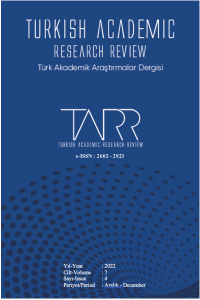Research Article
Review
Translation
Issue Editorial Board
 Web
Web


Mousa Rahimi
Address: Tehran, Shahrak-e Gharb, Khordad Boulevard, Tohid 3rd Street, No. 82, Unit 3
Mobile: +98 9961810912 – +98 9908909234
E-mail: rahimi.musa@gmail.com
PERSONAL INFORMATION
Place of Birth: Meshginshahr, Ardabil Province, Iran
Date of Birth: 01 November 1983
Marital Status: Married
EDUCATION
1997–2000: Motahhari High School, Mathematics
2003–2007: Allameh Tabataba’i University, B.A., Istanbul Turkish Language and Literature
2007–2010: Ankara University, M.A., Contemporary Turkic Dialects and Literatures
Thesis Title: Kavāʿid-i Turkī
2010–2016: Ankara University, Ph.D., Contemporary Turkic Dialects and Literatures
Dissertation Title: Muhammad Taqi Karakoyunlu’s Farhang-i Turkī Dictionary: Introduction and the “Alif” Section (1r–124r)
FOREIGN LANGUAGES
English: Good
Arabic: Intermediate
German: Beginner
ACADEMIC AND PROFESSIONAL EXPERIENCE
2005–2007: Teaching Istanbul Turkish, Goyesh Institute, Tehran
2009–2015: Teaching Persian and Ottoman Turkish, Mangutash Institute, Ankara
2013–2015: Teaching Persian and Ottoman Turkish, Çağrı Language Institute, Ankara
2017–Present: Faculty Member, Department of Istanbul Turkish Language and Literature, Allameh Tabataba’i University
COMPUTER SKILLS
Windows 10.1, Microsoft Office 2010 (Word, PowerPoint, Outlook, Excel), Edius, Subtitle Editor, Internet
TRANSLATIONS
2006: Peyami Safa, Room No: 9 (novel), Mahd-e Tamaddon Publishing, Ardabil
2019: Scientific editor of the book The Emergence of the Turkish Language
2020: Translation of The Little Black Fish into Ottoman Turkish, Ilahiyat Publications, Turkey
2023: Translations of Sabahattin Ali’s works The Car, The Voice, and The Prisoners, Allameh Tabataba’i University Press
2023: The Administrative Division History of Hamadan Province, Paradigm Publications, Çanakkale
2024: Qashqai Turkish–Persian Dictionary, translated into Istanbul Turkish with two colleagues, in preparation for publication
2025: Metin And, History of Theatre in Turkey, in press
AUTHORED BOOKS
2013: The Meeting of Civilizations: Tabriz and Its Surroundings
2018: Graduate curriculum design (Department of Istanbul Turkish)
2020: The Language of Documents: Persian–Turkish, Ilahiyat Publications
2022: Simplified Texts from Modern Turkish Literature, Jangal Publishing, Tehran
2023: Basiri and His Divan, Ilahiyat Publications, Turkey
SELECTED ARTICLES
(Only selected examples are listed; full list available upon request)
2006: “An Overview of the Book of Dede Korkut,” Golestaneh Journal, No. 74, pp. 94–97, Tehran.
2008: “Orhan Pamuk and the Tricultural Structure,” Golestaneh Journal, No. 87, pp. 67–72, Tehran.
2012: “A Comparative Study of Refusal Strategies among Speakers of Turkey Turkish and Iranian Azerbaijani Turkish,” Journal of Turkish Studies, Vol. 9, No. 3, pp. 170–183.
2014: “A Study on Muhammad Taqi Karakoyunlu’s Turkish Dictionary Written in India in the First Half of the 18th Century,” Journal of Turkish Studies, Vol. 11, No. 1, pp. 27–42.
2014: “The Linguistic Vitality of Khorasan Turks Today,” Tadid Journal, Vol. 13, No. 2, pp. 131–141.
2015a: “The Persian–Arabic–Turkish Dictionary in the National Library of Iran,” Proceedings of the Young Academics Symposium, Gazi University, pp. 551–572.
2015b: “Altaic Linguistic Relations Between Shira Yugur Mongolic and Yellow Uyghur Turkish (1),” Varlık Journal, 2nd Series, No. 2, pp. 21–30, Ankara.
2015c: “Altaic Linguistic Relations Between Shira Yugur Mongolic and Yellow Uyghur Turkish (2),” Varlık Journal, 2nd Series, No. 2, pp. 21–30, Ankara.
2019: “The Influence of Ancient Turkish Beliefs on Iranian Turks,” Milli Folklor, Winter, No. 124, Ankara.
2020a: “The Current Status of Khalaj Turks in the Context of Linguistic Vitality,” Journal of Modern Turkic Studies, Vol. 17, No. 2, pp. 131–145, Ankara.
2020b: “On a Turkish Grammar Book Written in Iran in the 19th Century,” Journal of Turkish Academic Studies, Vol. 5, No. 3, Antalya.
2021a: “A Feminist Comparative Analysis of the Works of Zoya Pirzad and Elif Shafak” (with Dr. Bik Babayi), Journal of Comparative Literature Studies, Winter, Vol. 9, No. 4, Tehran.
2021b: “Turkish Words Used in Mirza Haydar Dulat’s Tarikh-i Rashidi” (with Dr. Chemeni and Dr. Bik Babayi), Journal of Turkish Academic Studies, Vol. 5, No. 3, Antalya.
2022: “The Impact of Ancient Turkish Beliefs on Khorasan Turks and Their Reflections in the Modern World,” Folklore–Literature, Cyprus.
2023a: “Reflections of Stoic Thought in Rumi’s Poetry” (with Dr. Esperhem and Dr. Şahin), Journal of Hacı Bektaş Veli and Turkish Culture Studies, No. 105, pp. 129–149.
2023b: “An Evaluation of the Interpretation of Qur’an 96:1 in Turkish, English, and Persian Translations,” Journal of Translation Studies, Vol. 21, No. 81, pp. 7–23.
2023c: “Representations of the Concept of ‘Religion’ in Istanbul Turkish Qur’an Translations” (with Dr. Sharifi), Seraj-e Munir Journal, No. 47.
2023d: “The Impossible Space Between Desire and Pleasure: A Comparative Study of Love in Rūmī and Lacan,” Folklore & Literature, 29(4), DOI: 10.22559/folklor.2391.
2023e: “The Formation of Attitudes Toward Social Responsibility in the Holy Qur’an Using Functional Patterns in Social Psychology,” ISQH, Vol. 1, No. 2, pp. 147–168.
2024a–e: [Various comparative literature, mythology, Qur’anic translation, and classical poetry studies published in peer-reviewed journals and conference proceedings.]
SYMPOSIA AND CONFERENCES (Selected)
2010: The Current Status of Khalaj Turks, Ankara University
2015: Persian–Arabic–Turkish Dictionaries, Gazi University
2021: Translation and Publishing in Iran, Allameh Tabataba’i University
2025: On Turkish Translations of Kalila and Dimna, International Kalila and Dimna Symposium
BOOK REVIEWS
Reviews of various Turkology publications in MTAD Journal (2007–2014)
WORKSHOPS AND TRAINING
2017: Linguistic Status of the Khalaj Turks
2019: Translation of Commercial and Legal Texts (TR–FR & FR–TR)
2021: Architecture and Court Culture in the Ottoman Period
2023: Reflections of the Concepts of “Salat” and “Religion” in Turkish Qur’an Translations

Dr. Öğretim Üyesi Recep KIRCI
Aslen Afyonlu olan Dr. Öğretim Üyesi Recep KIRCI, Afyon’da 1975 yılında doğdu. İlkokulu Manisa Karaağaçlı 'da ve ortaokulu İzmir’de okudu. İzmir Anadolu İmam Hatip Lisesi’nden 1997 yılında mezun oldu. Anadolu Üniversitesi İktisat Fakültesi’nde 2012, Dokuz Eylül Üniversitesi İlahiyat Fakültesi’nde 2016 yılında lisans öğrenimini, Süleyman Demirel Üniversitesi’nde “İslam Ceza Hukukunda Uhrevi Sorumluluk” adlı teziyle 2017’da yüksek lisansını, Osmangazi Üniversitesi’nde “Ebû Alî el-Fârisî’nin et-Tekmile Adlı Eserindeki Metodoloji ve Sarf İlmine Dair Görüşleri ” adlı teziyle de 2021 yılında doktorasını tamamladı.
Diyanet İşleri Başkanlığı’nda 2012-2018 yılları arasında imam-hatip, Müezzin Kayyım ve Manevi Rehber olarak çalıştı.
Pamukkale Üniversitesi İlahiyat Fakültesi’nde 2018-2022 yıllarında öğretim görevlisi, Burdur Mehmet Akif Ersoy Üniversitesi İlahiyat Fakültesinde 2022-2024 yılları arası öğretim üyesi olarak çalıştı. Mart 2024'ten itibaren Balıkesir Üniversitesi İlahiyat Fakültesinde Dr. Öğretim Üyesi Olarak çalışmaya devam etmektedir. 2025 yılı Temmuz ayı itibari ile Doçent unvanı almıştır.
Uzmanlık alanıyla ilgili konularda çeşitli makale ve sempozyum, tercüme eser ve kitapları bulunan Kırcı, evli ve 2 çocuk babasıdır. Pekiyi derecede Arapça ve İyi derecede Farsça bilmektedir.
İLETİŞİM
E-posta
recep.kirci@balikesir.edu.tr
Diğer E-posta
recep_k_03@hotmail.com
İş Telefonu
0 266 249 61 79
Ofis
Balıkesir Üniversitesi, İlahiyat Fakültesi
Posta Adresi
Balıkesir Üniversitesi Çağış Yerleşkesi Bigadiç Yolu 17.km Altıeylül/BALIKESİR
Aim & Scope
Aim
The Journal of Turkish Academic Research Review aims to contribute scientists by publishing articles such as copyright and translation articles, manuscript critics and translations; scientific activity promotion and evaluations (symposiums, seminars, conferences, panels); experimental, descriptive and theoretical studies; model suggestions, etc. in the fields of Social Sciences and Humanities, History, Culture and Art, Economic, Communication, Law, Administrative Sciences, Philosophy and Religious Studies and Education related to human and society Studies.
Scope
The Journal of Turkish Academic Research Review publishes studies such as copyright and translation articles, manuscript critics and translations; scientific activity promotion and evaluations (symposiums, seminars, conferences, panels); experimental, descriptive and theoretical studies; model suggestions, etc. in the fields of Social Sciences and Humanities, History, Culture and Art, Economic, Communication, Law, Administrative Sciences, Philosophy and Religious Studies and Education related to human and society Studies. The studies submitted to our journal should not have been previously published and should not be in the publication process in another journal. The publication language is Turkish, but articles in foreign languages can also be published.
Subject Category
Social Sciences: History and Philosophy of Science; Education and Educational Research, Psychology; Religion,Cultural Studies; Political Science, Economics, Sociology, International Relations, Business, Communication
Humanities: Philosophy, Religion & Theology, History
Field of Science: History, Culture, Art; Economics, Administrative Sciences; Philosophy and Religious Studies; Education
Keywords
History; Christianity, Judaism, Islam, Buddhism, Hinduism, Ottoman History, Seljuk, Turkish Republic History, World History, European History, African History, Art History, Economics and Administrative Sciences; International Relations, Political Science, Business, Economics, Sociology; Family Sociology, Sociology of Religion, Sociology of Education and Social Science, Economic Sociology, Sociology of Communication, Sociology of Art, Sociology of Public Health, Political Sociology , Philosophy; Moral Philosophy, Philosophy of Religion, Philosophy of Islam, Philosophy of Science, Philosophy of Education, Philosophy of Ethics, Education; Curriculum and Instruction, Educational Psychology, Special Education, Guidance, International Education, School Management, Measurement and Evaluation, Economics; Microeconomics, Macroeconomics, History of Economics, History of Economic Thought, International Economics, Turkish Economy, Development Economics, Public Economics, Political Economy, Environmental Economics, Industrial Economics, Labor Economics, Agricultural Economics, New Economy, Tourism Economics, Mixed Economics, Business Economics, Democracy, World Economics, Turkish Economy, Development Economics, Public Economics, Politics, International Relations
Period of Publication
Turkish Academic Research Review (tarr) is a peer-reviewed scientific journal published 4 issues per year (March-June-September-December).
Target Audience
The target audience of Journal of Turkish Academic Research Review [tarr] is Academicians, Researchers, Undergraduate, Postgraduate, Doctorate students, and interested readers.
Author Guidelines
Writing Rules:
The Journal of Turkish Academic Research Review Writing Rules [ISSN: 2602-2923]
The studies sent to our journal should not have been previously published and should not be in the publication process in another journal.
1. Main title: It should be a title that is compatible with the content of the article and best expresses the content, capitalised each letter, Times New Roman (12 font size), written in bold. The title of the article should not exceed 10-12 words.
2. Author name and institution: Author name and institution information should not be written as the study submitted will be directed to the referees. Name and surname, institution information (TR & ENG), e-mail and ORCID ID should be written as specified in the template before the article is approved for publication.
3. Abstract: Articles contain an English title, an abstract (at least 250 words), keywords (at least 5 concepts), a summary (at least 750 words), and a bibliography prepared with APA Style. In the abstract, the sources used, figures and chart numbers should not be included.
4. Keywords: There should be 5-7 keywords under the abstract. The initials of each letter of the keywords should be capitalised and the comma should be used between them.
5. Main text: The texts, pictures, figures, maps, etc. should not exceed 35 journal pages (15,000 words), including its annexes. The articles submitted should be written in A4 size white paper (giving 4 cm space before, after and right; 5 cm in left) by using a "Times New Roman" font with a "minimum, 12nk" line spacing, justified without a hyphen. Besides, the tables, figures, pictures, graphics etc. should not exceed the dimensions of the journal and should not exceed 12x17 cm for easier use. Therefore, in tables, figures, pictures, graphics, etc. smaller fonts and single spacing can be used. “APA” system will be used in footnote and bibliography.
6. Subtitles: Main, intermediate and subtitles can be used in the article provided that they are in harmony with the content. Each letter of these titles should be capitalised.
7. Tables and Figures: Tables should have numbers and titles. Tables, figures, pictures, graphics etc. should not exceed the dimensions of the journal and should not exceed 12x17 cm for easier use. Therefore, tables, figures, pictures, graphics, etc. smaller fonts and single spacing can be used for features.
8. Visuals: They should be added as appendix in the format of high resolution and print quality scanned. The rules in the figures and charts should be followed in picture naming.
Figures, charts and pictures should not exceed 10 pages (one-third of the text). Authors with technical possibilities may place figures, charts and pictures in their places in the text, provided that they can be printed exactly.
9. Citations and Quotations: Direct citations should be quoted. Citations less than 3 lines between lines; Citations longer than 3 lines should be written as 1,5 cm inside and to the left of the line, in blocks and with a line spacing of 1,5, in 9 font. The use of footnotes should be avoided as much as possible, an explanation should only be used and automatic numbering should be used (Office Word).
10. The articles submitted for publication pass the stages of PRE- REVIEW, PLAGIARISM CHECK, REFEREE EVALUATION and TURKISH-ENGLISH LANGUAGE CONTROL. The study, which has been examined three times during the pre-review phase, but cannot go through this process, is returned to the author and not re-processed in the same publication period. Studies that pass the pre-review phase pass to the evaluation process in which at least two referees take part in the framework of the principle of double-blind review.
11. In the use of punctuation marks, the words and abbreviations, the latest Turkish Language Association (TDK) Spelling Guide should be taken as basis in the article, a clear and simple expression should be followed, and unnecessary information that goes beyond the scope and purpose should not be included.
12. The scientific methods in the preparation of the article should be followed; the information about the subject of the study, its purpose, scope, the rationale for preparation etc. should be provided in sufficiently and in a certain peder.
For detailed information on Citations and Resources, see: http://www.tk.org.tr/APA/apa_2.pdf
Tahkikli Neşir Esasları için bakınız:
http://www.isam.org.tr/documents/_dosyalar/_pdfler/ISAM_Tahkikli_Nesir_Esaslari.pdf
Ethical Principles and Publication Policy
A. UBLICATION ETHICS AND PUBLICATION MALPRACTICE STATEMENT
The publication process at Turkish Academic Research Review is the basis of the improvement and dissemination of information objectively and respectfully. Therefore, the procedures in this process improve the quality of the studies. Peer-reviewed studies are the ones that support and materialize the scientific method. At this point, it is of utmost importance that all parties included in the publication process (authors, readers and researchers, publisher, reviewers and editors) comply with the standards of ethical considerations. Turkish Academic Research Review expects all parties to hold the following ethical responsibilities.
The following ethical duties and responsibilities are written in the light of the guide and policies made by Committee on Publication Ethics (COPE).
The publication of an article in a peer-reviewed journal is an essential building block in the development of a coherent and respected network of knowledge. It is a direct reflection of the quality of the work of the authors and the institutions that support them. Peer-reviewed articles support and embody the scientific method. It is therefore important to agree upon standards of expected ethical behavior for all parties involved in the act of publishing: the author, the journal editor, the peer reviewer, and the publisher.
1. Publication and authorship:
List of references, financial support;
No plagiarism, no fraudulent data;
Forbidden to publish same research in more than one journal.
2. Author’s responsibilities:
Authors obliged to participate in peer review process;
All authors have significantly contributed to the research;
Statement that all data in article are real and authentic;
All authors are obliged to provide retractions or corrections of mistakes.
3. Peer review / responsibility for the reviewers:
Judgments should be objective;
Reviewers should have no conflict of interest with respect to the research, the authors and/or the research funders;
Reviewers should point out relevant published work which is not yet cited;
Reviewed articles should be treated confidentially.
4. Editorial responsibilities:
Editors have complete responsibility and authority to reject/accept an article;
Editors should have no conflict of interest with respect to articles they reject/accept;
Only accept a paper when reasonably certain;
When errors are found, promote publication of correction or retraction;
Preserve anonymity of reviewers.
No plagiarism, no fraudulent data.
5. Publishing ethics issues
Monitoring/safeguarding publishing ethics by editorial board;
Guidelines for retracting articles;
Maintain the integrity of the academic record;
Preclude business needs from compromising intellectual and ethical standards;
Always be willing to publish corrections, clarifications, retractions and apologies when needed.
Duties of the Publisher
Turkish Academic Research Review is committed to ensuring that commercial revenue has no impact or influence on editorial decisions. In addition, CTJ will assist in communications with other journals and/or publishers where this is useful to editors. Finally, we are working closely with other publishers and industry associations to set standards for best practices on ethical matters, errors and retractions–and are prepared to provide specialized legal review and counsel if necessary.
Plagiarism Detection
Turkish Academic Research Review uses double-blind review fulfilled by at least two reviewers. In addition, all articles are checked by means of a program in order to confirm they are not published before and avoid plagiarism.
The peer review process is at the heart of the success of scientific publishing. As part of our commitment to the protection and enhancement of the peer review process, CTJ has an obligation to assist the scientific community in all aspects of publishing ethics, especially in cases of (suspected) duplicate submission or plagiarism.
When a reader discovers a significant error or inaccuracy in a paper published in Turkish Academic Research Review or have any other complaint about editorial content (plagiarism, duplicate papers, etc.), he/she should make a complaint by e-mail to: turkisharr@gmail.com We welcome complaints as they provide an opportunity for improvement, and we aim to respond quickly and constructively.
B. PUBLICATION PRINCIPLES
1. The Journal of Turkish Academic Research Review [TARR] is an international peer-reviewed journal that publishes 4 issues (March, June, September and December.) a year.2. The Journal of Turkish Academic Research Review publishes studies such as copyright and translation articles, manuscript critics and translations; scientific activity promotion and evaluations (symposiums, seminars, conferences, panels); experimental, descriptive and theoretical studies; model suggestions, etc. in the fields of Social Sciences and Humanities, History, Culture and Art, Economic, Communication, Law, Administrative Sciences, Philosophy and Religious Studies and Education related to human and society Studies.
3. The studies submitted to the journal for publication are reviewed by the editorial board and then directed to two referees in the relevant field. The studies are published when at least two referees make decision “publishable”. The study the decision to publish is taken, is placed in the publication order. Referee reports are confidential. The author (s) are informed about their work during the process.
4. The submitted studies are not returned whether they are published or not. Only the referee reports are sent to the author and the decision is reported.
5. The studies are sent back to authors for making revision stated by referee/s if one or both of the referees report "CAN BE PUBLISHED WITH REVISION". They are evaluated by the editorial board whether the warnings of the referees are taken into consideration or not after the correction.
6. A copy of the originals of the texts should be attached in translation and simplification studies.
7. The editorial board decides to publish the book reviews.
8. Scientific and legal responsibility of the articles belongs to their authors. Copyright fee is not paid to the authors.
9. The accepted studies will be published electronically.
10. The studies sent to our journal should not have been previously published and should not be in the publication process in another journal. Papers presented in scientific meetings can be published provided that necessary explanations are made.
11. After signing up to the system, you need to send your article in the form of "Word" (without specifying the Name and Surname) by clicking the membership button on the main page of the journal. In terms of the proper functioning of the referee process, no contact information about the name, title, institution, etc. should be provided in the title page of the article. This information will be added by the editor at the publishing stage after the referee evaluation process is completed. However, since all articles will be followed on http://dergipark.org.tr/tarr, the article name should be written in Turkish and English, the names, surnames, academic titles of the authors and the institution they work in should be fully entered in the membership process.
12. Sending an article to the Turkish Academic Research Review (Turkish Journal of Academic Research) is accepted as "SUBMISSION".
Price Policy
Turkish Academic Research Review does not request, expect or charge any fee or processing charges (APCs) at any time whatsoever from the authors or readers.
Indexes
Other Indexes
Journal Boards
Owner

Assoc. Prof. Dr. Mehmet Şahin, who is originally from Adana, was born in 1975. He attended primary school in İmamoğlu. He graduated from Kozan Imam Hatip High School in 1994. He completed his undergraduate education at Ankara University Faculty of Theology, his master's degree at the same university with his thesis titled "Mustafa Fevzi b. Numan Life, Works and Poems Related to Religious Literature" in 2006, and his doctorate at Ankara Yıldırım Beyazıt University in 2016 with his thesis titled "Prose Yûsuf u Züleyha Stories in Old Turkish Literature and Muhammed b. İbrahim's Yûsuf u Züleyhâ'sı".
He worked as a manager at Ankara Sincan District Governorate Social Assistance and Solidarity Foundation between 2004-2005. He worked as an archive staff at the Library and Archive Services Directorate of the Grand National Assembly of Turkey between 2006-2016. During these years, within the scope of the Independence Courts Project, he worked in the project of inventorying, classifying, transferring to electronic media, indexing and transferring from Ottoman Turkish to today's alphabet. Within the scope of this project, his books titled İstiklal Courts, Istanbul İstiklal Court, Elcezire İstiklal Court, Isparta İstiklal Court, Eskişehir İstiklal Court, Şark İstiklal Court (5 volumes), Second Term Ankara İstiklal Court (3 volumes) were published. His book titled TBMM Albümü 1920-2010 (4 volumes), which he prepared with the committee during his service in the TBMM, was published by TBMM Press and Public Relations Directorate Publications in 2010. In 2015, he wrote the book Anthology of Turkish Poets of the Century (Transfer to Ottoman Turkish) with Emrah Gökçe.
Şahin started to work as a lecturer in the Department of Turkish-Islamic Literature at Akdeniz University Faculty of Theology in 2016 and is still working as the head of the Department of Islamic History and Arts. He coordinates the ongoing International Multidisciplinary Congresses of the Journal of Turkish Academic Research. He is also the founder and editor of the internationally indexed journals Turkish Academic Research Review and Tanım Tenkit ve Teori.
Şahin has publications such as Ankaralı Râzî and Divanı, Esâsî Divanı, Basîrî Divanı, Küçük Kara Balık (Translation into Ottoman Turkish with Moosa Rahimi), Language of Documents (Moosa Rahimi).
Şahin, who has also served as a commission member in various public institutions on issues related to his field of expertise, is married and has 3 children. He speaks English, Arabic, Persian and Ottoman Turkish.
CONTACT US
email
mehmetsahin@akdeniz.edu.tr
Other email
drmentesli@gmail.com
Cell Phone
+90 533 056 9174
Work Phone
+90 0242 310 6888 Extension: 3401
Office
Akdeniz University, Faculty of Theology
Mail Address
Akdeniz University Faculty of Theology Dumlupınar Bulvarı, 07058 Konyaaltı, Antalya-Turkey
Editor in Chief

Assoc. Prof. Dr. Mehmet Şahin, who is originally from Adana, was born in 1975. He attended primary school in İmamoğlu. He graduated from Kozan Imam Hatip High School in 1994. He completed his undergraduate education at Ankara University Faculty of Theology, his master's degree at the same university with his thesis titled "Mustafa Fevzi b. Numan Life, Works and Poems Related to Religious Literature" in 2006, and his doctorate at Ankara Yıldırım Beyazıt University in 2016 with his thesis titled "Prose Yûsuf u Züleyha Stories in Old Turkish Literature and Muhammed b. İbrahim's Yûsuf u Züleyhâ'sı".
He worked as a manager at Ankara Sincan District Governorate Social Assistance and Solidarity Foundation between 2004-2005. He worked as an archive staff at the Library and Archive Services Directorate of the Grand National Assembly of Turkey between 2006-2016. During these years, within the scope of the Independence Courts Project, he worked in the project of inventorying, classifying, transferring to electronic media, indexing and transferring from Ottoman Turkish to today's alphabet. Within the scope of this project, his books titled İstiklal Courts, Istanbul İstiklal Court, Elcezire İstiklal Court, Isparta İstiklal Court, Eskişehir İstiklal Court, Şark İstiklal Court (5 volumes), Second Term Ankara İstiklal Court (3 volumes) were published. His book titled TBMM Albümü 1920-2010 (4 volumes), which he prepared with the committee during his service in the TBMM, was published by TBMM Press and Public Relations Directorate Publications in 2010. In 2015, he wrote the book Anthology of Turkish Poets of the Century (Transfer to Ottoman Turkish) with Emrah Gökçe.
Şahin started to work as a lecturer in the Department of Turkish-Islamic Literature at Akdeniz University Faculty of Theology in 2016 and is still working as the head of the Department of Islamic History and Arts. He coordinates the ongoing International Multidisciplinary Congresses of the Journal of Turkish Academic Research. He is also the founder and editor of the internationally indexed journals Turkish Academic Research Review and Tanım Tenkit ve Teori.
Şahin has publications such as Ankaralı Râzî and Divanı, Esâsî Divanı, Basîrî Divanı, Küçük Kara Balık (Translation into Ottoman Turkish with Moosa Rahimi), Language of Documents (Moosa Rahimi).
Şahin, who has also served as a commission member in various public institutions on issues related to his field of expertise, is married and has 3 children. He speaks English, Arabic, Persian and Ottoman Turkish.
CONTACT US
email
mehmetsahin@akdeniz.edu.tr
Other email
drmentesli@gmail.com
Cell Phone
+90 533 056 9174
Work Phone
+90 0242 310 6888 Extension: 3401
Office
Akdeniz University, Faculty of Theology
Mail Address
Akdeniz University Faculty of Theology Dumlupınar Bulvarı, 07058 Konyaaltı, Antalya-Turkey
Assistant Editors


1994 yılında Sivas’ın Şarkışla ilçesinde doğdu. İlk, ortaokul ve liseyi Şarkışla’da okudu. Şarkışla İmam Hatip Lisesi’nden 2012 yılında mezun oldu. Aynı yıl Akdeniz Üniversitesi İlahiyat Fakültesi’nde lisans öğrenime başladı. 2017 yılında lisans öğrenimini tamamladı ve Akdeniz Üniversitesi İlahiyat Fakültesi’nde 2018 yıllında araştırma görevlisi olarak çalışmaya başladı. Aynı üniversitede “Bir Müfessir Olarak İbn Receb el-Hanbelî ve Tefsire Dair Görüşlerinin Derlendiği Ravâiu't-tefsir İsimli Eserin Ulûmü'l-Kur'ân Açısından İncelenmesi ” adlı teziyle 2020 yılında yüksek lisansını tamamladı ve aynı yıl doktoraya başladı. “Âlûsî’nin Rûhu’l-Meânî İsimli Tefsirinde Mu’tezilî Söylemin Eleştirisi” isimli teziyle doktorasına devam etmekte.
Karabulut’un “İbn Receb’in Tefsirciliği”, “Mi‘râc”, “Kabir Azâbı” ve “Vahiy-İlham Ayrımı” gibi konularda yayınları bulunmaktadır. Bazı projelerde araştırmacı olarak görev aldı.

Editorial Board



2002 yılında Atatürk Üniversitesi İlahiyat Fakültesinden mezun olmuştur. Yüksek lisansını Atatürk Üniversitesi Sosyal Bilimler Enstitüsü Felsefe ve Din Bilimleri Anabilim Dalında “Reality Show ve Kadın Programlarının Türk Aile Yapısına Etkisi (Erzurum Örneği)” konulu teziyle 2006 yılında tamamlamıştır. Aynı enstitüde yaptığı, “Din ve Sosyal Bütünleşme: Farklılık ve Birlikte Yaşama (Göksun Örneği)” adlı çalışmayla 2012 yılında doktor olmuştur. 2003-2013 tarihleri arasında Diyanet İşleri Başkanlığı taşra teşkilatında çalışmıştır. 2013 yılından beri Akdeniz Üniversitesi İlahiyat Fakültesi, Felsefe ve Din Bilimleri Bölümü, Din Sosyolojisi Anabilim Dalında öğretim üyeliği görevini sürdürmektedir.

Assoc. Prof. Dr. Mehmet Şahin, who is originally from Adana, was born in 1975. He attended primary school in İmamoğlu. He graduated from Kozan Imam Hatip High School in 1994. He completed his undergraduate education at Ankara University Faculty of Theology, his master's degree at the same university with his thesis titled "Mustafa Fevzi b. Numan Life, Works and Poems Related to Religious Literature" in 2006, and his doctorate at Ankara Yıldırım Beyazıt University in 2016 with his thesis titled "Prose Yûsuf u Züleyha Stories in Old Turkish Literature and Muhammed b. İbrahim's Yûsuf u Züleyhâ'sı".
He worked as a manager at Ankara Sincan District Governorate Social Assistance and Solidarity Foundation between 2004-2005. He worked as an archive staff at the Library and Archive Services Directorate of the Grand National Assembly of Turkey between 2006-2016. During these years, within the scope of the Independence Courts Project, he worked in the project of inventorying, classifying, transferring to electronic media, indexing and transferring from Ottoman Turkish to today's alphabet. Within the scope of this project, his books titled İstiklal Courts, Istanbul İstiklal Court, Elcezire İstiklal Court, Isparta İstiklal Court, Eskişehir İstiklal Court, Şark İstiklal Court (5 volumes), Second Term Ankara İstiklal Court (3 volumes) were published. His book titled TBMM Albümü 1920-2010 (4 volumes), which he prepared with the committee during his service in the TBMM, was published by TBMM Press and Public Relations Directorate Publications in 2010. In 2015, he wrote the book Anthology of Turkish Poets of the Century (Transfer to Ottoman Turkish) with Emrah Gökçe.
Şahin started to work as a lecturer in the Department of Turkish-Islamic Literature at Akdeniz University Faculty of Theology in 2016 and is still working as the head of the Department of Islamic History and Arts. He coordinates the ongoing International Multidisciplinary Congresses of the Journal of Turkish Academic Research. He is also the founder and editor of the internationally indexed journals Turkish Academic Research Review and Tanım Tenkit ve Teori.
Şahin has publications such as Ankaralı Râzî and Divanı, Esâsî Divanı, Basîrî Divanı, Küçük Kara Balık (Translation into Ottoman Turkish with Moosa Rahimi), Language of Documents (Moosa Rahimi).
Şahin, who has also served as a commission member in various public institutions on issues related to his field of expertise, is married and has 3 children. He speaks English, Arabic, Persian and Ottoman Turkish.
CONTACT US
email
mehmetsahin@akdeniz.edu.tr
Other email
drmentesli@gmail.com
Cell Phone
+90 533 056 9174
Work Phone
+90 0242 310 6888 Extension: 3401
Office
Akdeniz University, Faculty of Theology
Mail Address
Akdeniz University Faculty of Theology Dumlupınar Bulvarı, 07058 Konyaaltı, Antalya-Turkey


Doç. Dr. OKAN ALAY
1975’te Bingöl’de doğdu. İlk, orta ve lise öğrenimini aynı ilde tamamladı. 19 Mayıs Üniversitesi Eğitim Fakültesi Türk Dili ve Edebiyatı Öğretmenliği bölümünü bitirdi. Yüksek Lisans eğitimini Fırat Üniversitesi Sosyal Bilimler Enstitüsü Türk Edebiyatı Bölümü’nde “Bingöl Masalları (İnceleme-metin)”, doktorasını da yine aynı üniversitede “Türk Saz Şirinde Yergi, İroni ve Mizah” adı teziyle 2015 yılında tamamladı. 2010 yılından beri Hacettepe Üniversitesi’nde Türkçe ve Yabancı Dil öğretimi Uygulama ve Araştırma Merkezi’nde doçent öğretim görevlisi olarak çalışmaktadır.
Türk Halkbilimi/ Halk Edebiyatı ana bilim dalında Anadolu sahası halk edebiyatı, Alevilik Araştırmaları, sözlü kültür, sözlü gelenek ve şiir, masal araştırmaları, Anadolu, Kafkasya ve İran halk kültürleri, karşılaştırmalı edebiyat gibi alanlara dair çok sayıda makale, kongre/sempozyum bildirisi, kitap eleştiri yayını bulunmaktadır. Ayrıca şiir, öykü, deneme ve çeviri türlerinde çok sayıda kitabı yayınlanmıştır. Şiir ve öyküleri birçok dergide yayınlandığı farklı dillere çevrilmiştir. Beşparmak Dergisi 9. Şiir Ödülü’nde ikincilik ödülünü aldı (2004), Arkadaş Z. Özger 2004 Şiir Ödülü ve Yaşar Nabi Nayır Gençlik Ödülleri 2005’te ise “Dikkate Değer” görüldü. Ayrıca Sennur Sezer Emek-Direniş Şiir ve Öykü Ödülleri’nde “Kaldığı Yerden” adlı dosyasıyla öykü dalında jüri özel ödülünü aldı. (2020).
Yayınlanmış Kitapları:
Şiir: Suyun Gölgeye Karıştığı (2005, 2014, 2020); Yanılgılar Evi (2010, 2020), (H)iç Ses, (2016, 2020)
Öykü: İçimdeki Uzak (2015)
Araştırma: Kültür Dünyamızda Bingöl, (1996, 2006) , Sözlü Kültür ve Ezgili/Şiirsel Sözlü Gelenek (2019)
Çeviri: Çağdaş İran Şiirinin Öncü İsmi Nîmâ Yûşic: Senin Yolunu gözlüyorum (2017), Sohrab Sepehrî, Rengin Ölümü ve Yolcu (2018), Sohrab Sepehrî, Kederin Doğusu & Suyun Ayak Sesi (2019), Sâdık Hidâyet, Kör Baykuş (2021), Sâdık Hidâyet, Aylak Köpek (2022).
İletişim Bilgileri:
Hacettepe Üniversitesi
Türkçe ve Yabancı Dil öğretimi Uygulama ve Araştırma Merkezi Müdürlüğü
Beytepe-Ankara
Tel: 0312-2978350
e-Posta: okanalay@hacettepe.edu.tr
Tel: 0505371683
ORCID ID: https://orcid.org/0000-0003-3065-5705

Anar Gafarov 1 Temmuz 1979'da Azerbaycan’da, Bakü’de doğdu. 1997 yılında Bakü’de 177 saylı liseden mezun oldu. 1997-2002 yıllarında Bakü Devlet Üniversitesi İlahiyat Fakültesi’nde "Geleneksel Türk dini inançları ve günümüz Azerbaycan'ındaki tezahürleri" konulu tez çalışmasıyla İlahiyat ve Arap dili öğretmenliği olmakla çift dalda lisans ve yüksek lisans yaptı ve üniversiteyi üstün başarılı diplomayla bitirdi. 2002-2004 yıllarında T.C.Marmara Üniversitesi Sosyal Bilimler Enstitüsü İslam Felsefesi Anabilim Dalında yüksek lisans yaptı ve Prof.Dr. Mustafa Çağrıcı’nın danışmanlığında “Ragıb el-İsfahânî'nin İnsan ve Ahlak Anlayışı” konulu tez çalışmasıyla İslam felsefesi Anabilim Dalından yüksek lisans eğitimini başarıyla tamamladı. A. Gafarov, 2005-2009 yıllarında Ankara Üniversitesi Sosyal Bilimler Enstitüsü Felsefe ve Din Bilimleri Anabilim Dalında doktora eğitimi aldı ve Prof.Dr. Mehmet Bayraktar’ın danışmanlığında hazırladığı “Nasiruddin et-Tûsî'nin Ahlak Felsefesi” konulu doktora tezini başarıyla savunarak felsefe doktoru ünvanını aldı.
Anar Gafarov lisans, yüksek lisans ve doktora yaptığı dönemlerde sosial sorumluluk, bilgi yarışları ve medeniyet projelerinde aktiv iştirak etmiş ve ödüller almıştır. Şöyle ki, A.Gafarov Bakü Devlet Üniversitesi Rektörlüğü tarafından düzenlenen bilgi yarışlarından başarılı olarak “Onur Fermanı (2001)”, Azerbaycan İstanbul Baş Konsolosluğu tarafından düzenlenen "Haydar Aliyev ve Çağdaş Azerbaycan Devleti" konulu bilimsel makale yarışmasında “Başarılı Makale Yazarı (2007)” ve Türkiye Diyanet İşleri Başkanı tarafından Türkiye Diyaner İşleri Vakfı Bakü Türk Lisesi’nde “Yılın Başarılı Öğretmeni (2012)” ödülünü aldı.
2009’da Azerbaycan Cuhuriyeti Dini Kurumlarla İş Üzre Devlet Komiteside kısa süreliğine bölge müşaviri ve dış ilişkiler ve basın güvenliği uzmanı olarak çalışan A.Gafarov, 2010-2014 yıllarında Azerbaycan Slavyan Üniversitesi, Hazar Üniversitesi ve Azerbaycan İktisat Üniversitesinde felsefe ve eğitim tarihi derslerini verdi. Ayrıca 2010-2012-yıllarında Amerika Bileşik Devletlerinin Medivial Lombard Üniversitetsinin İlahiyyat fakültesinde ve diğer üniversitelerin uygun bölümlerinde “Gerçek İslam ve Müslümanlık”, “İslam Düşüncesinde Kamil İnsan Anlayışı” konulu seminar ve konferanslar verdi. Bundan başka, A.Gafarov 2013’te T.C.Sosyal Bilimler Araştırma Dergisinin “Umummilli Lider Haydan Aliyev’in hatırasına” özel sayısının (sayı: 22) hazırlanmasında koodinatör ve hakem olarak katkılarda bulundu. 2012 yılında “Bilimsel Araştırmalar Bağlamında Hukuki, Politik, Sosyal-Ekonomik ve Psikolojik Yönleriyle Ortadoğu Hakikatleri” adlı uluslararası sepmozyum Anar Gafarov’un heyetle beraber T.C.Ortadoğu Araştırmalar Merkezi’nin desteğiyle hazırladığı proje kapsamında gerçekleşmiştir. Yine A.Gafarov 29-30 Mart 2013 tarihlerinde bilimsel katkı sağladığı proje kapsamında "Arşiv Belgelerinde Azerbaycanlıların Soykırımı” ve Azerbaycan ve Türkiye Yazarlar Birliği'nin desteğiyle "Azerbaycan ve Türk Edebiyatında Ermeni Sorunu” konularında Bakü'de düzenlenen uluslararası konferanslarda bilimsel ve uygulamalı faaliyetlerde bulunuldu. Ayrıca A.Gafarov T.C. Aile ve Sosial Politikalar Bakanlığı’nın desteğiyle “Hayallerimiz, Hedeflerimiz ve Değerlerimiz” yönünde projeler gerçekleştirdi ve çocuk evlerinde çalışan eğitimciler için sosial sorumluluk porjeleri kapsamında eğitim-öğretim seminerleri düzenledi. T.C. İLKE (İlim, Kültür ve Eğitim) araştırma merkezinin desteğiyle 2015-2016 yıllarında İstanbul’da düzenlenen “İslam Ahlak Düşüncesi Projesi I: Ahlakın Kaynağı” ve “İslam Ahlak Düşüncesi Projesi II: Vicdan” konulu çalıştaylara “Nasirüddin Tusi’de Ahlaki Önermelerin Kaynağı” və “Nasirüddin Tûsî’de Vicdan Kavramı” konulu çalışmalarıyla bilimsel katkılarda bulunan A.Gafarov’un her iki çalışması ortak yazarlı kitap olarak Nobel yayınlarında basıldı.
A.Gafarov, 2009-2010-yıllarında Azerbaycan Milli Bilimler Akademisi Doğubilimleri (Şarkşünaslık) Enstitüsünde, 2010-2014-yıllarında Felsefe ve Sosyoloji Enstitüsünde araştırmacı, 2014-2017 yıllarında T.C.Bülent Ecevit Üniversitesi İlahiyat fakültesinde sözleşmeli öğretim üyesi, 2017-2021-yılında Azerbaycan Milli Bilimler Akademisi Felsefe ve Sosyoloji Enstitüsünde doçent araştırmacı, 2018-2021 yılında Azerbaycan İlahiyat Enstitüsünde doçent öğretim üyesi olarak çalışdı. A. Gafarov 2021-yılından itibaren Azebaycan İlahiyat Enstitüsü Din Bilimleri Anabilim Dalı Başkanı olarak çalışmatadır. A. Gafarov yurt içi ve yurt dışı üniversitelerde çalıştığı dönemlerde İslam felsefesi, Ahlak felsefesi, Din felsefesi, Kelam, Çağdaş İslam düşüncesi, Dinler tarihi, Mezhepler tarihi, Din psikolojisi, Din sosyolojisi, İslam medeniyet tarihi, Eğitim tarihi, Din eğitimi ve İslam ahlakı alanlarında dersler verdi. Temel bilimsel araştırma alanı İslam felsefesi, İslam siyaset düşüncesi, ahlak felsefesi, siyaset-ahlak ilişkisi, Ortaçağ felsefe tarihi ve ahlak psikolojisidir. Tek ve ortak yazarlı 16 kitabın yazarı olan A. Gafarov Azerbaycan ve Türkiye’de toplam 9 kitabın ilmi redaksiyonluğunu ve 2 kitabın editörlüğünü, felsefe , ahlak felsefesi, tasavvuf ve İslam ahlakı gibi alanlarda Arapça, Farsça, İngilizce ve Türkçe’den 10 kitabın çevirisini yaptı. Yerli ve uluslararası bilimsel dergilerde 25 makalesi yayınlanan A.Gafarov, ayrıca pek çok yerli ve uluslararası konferans ve sempozyumlarda bilimsel araştırmalarıyla katkılarda bulundu, Azerbaycan ve Türkiye’de sosial sorumluluk ve modern bilimsel araştırma yöntemleri alanlarında 11 proje gerçekleçtirdi. Ayrıca A.Gafarov yerli ve uluslararası 8 derginin hakem kurulunda yer almaktadır.

Safiye Genç is an Assistant Professor in the Department of German Language and Literature at the Akdeniz University Turkey. She completed her Ph.D. in 2011 at Istanbul University and her undergraduate studies at Marmara University. She is interested in German language and literature, bilingualism research, language contact, semantics and speech economy. For additional information see http://aves.akdeniz.edu.tr/safiyegenc/

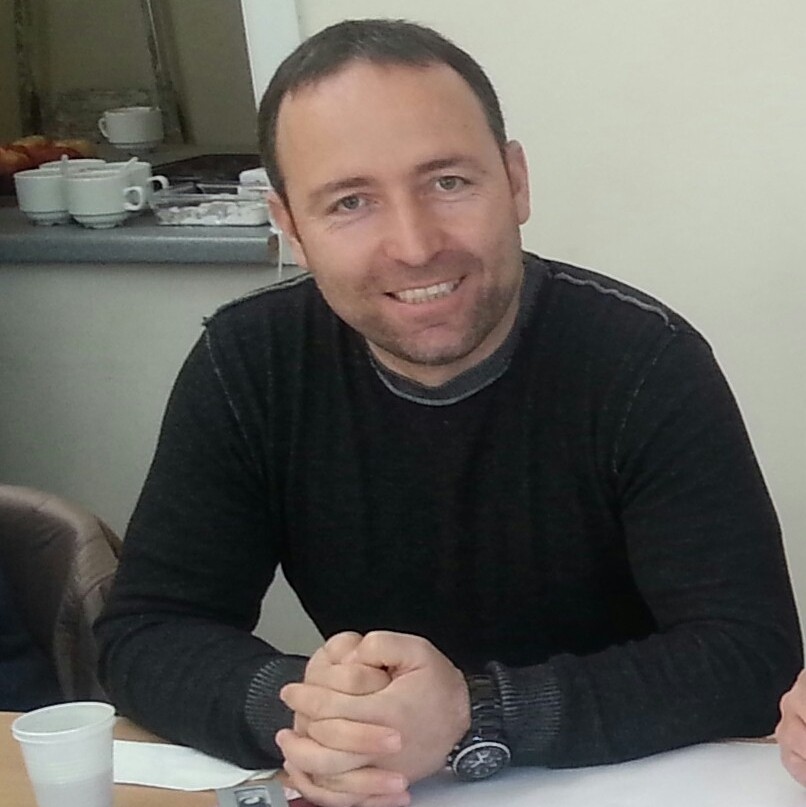
Dr. Encümen Bayram, Van’da 1981 yılında doğdu. İlk ve ortaokulu Gevaş’ta okudu. Van Atatürk Süper Lisesi’nden 1998 yılında mezun oldu. Gazi Üniversitesi Eğitim Fakültesi Arapça Öğretmenliği Bölümü’nde 2003 yılında lisans öğrenimini, Akdeniz Üniversitesi İlahiyat Fakültesi “Selâme Musâ ve el-Belâğatü’l- ‘asriyye ve’l-lüğatü’l-‘Arabiyye Adlı Eseri ” isimli teziyle 2015’da yüksek lisansını, aynı Üniversitede “Muhammed Abdulhalim Abdullah’ın Romancılığı” adlı teziyle de 2021 yılında doktorasını tamamladı.
Bayram, 2003-2004 yılları arası İhlas Haber Ajansı Basra Muhabiri olarak görev yaptı sonrasında Milli Eğitim Bakanlığı’nda 2004-2017 yılları arasında öğretmen olarak çalıştı. Daha sonra Akdeniz Üniversitesi İlahiyat Fakültesi’nde 2017-_ yılından itibaren öğretim görevlisi ve öğretim üyesi olarak çalışmaktadır.
Bayram, 2010-2017 yılları arasında Ulusal Ajan tarafından hibelendirilen çeşitli projelerde yürütücü, proje koçu ve katılımcısı olarak görevler aldı. (https://avesis.akdeniz.edu.tr/encumenbayram/egitim)
Encümen Bayram’ın Arap dili, Arap romanı ve Osmanlı dönemi konularında bilimsel yayınları bulunmaktadır. (https://avesis.akdeniz.edu.tr/encumenbayram).
Uzmanlık alanıyla ilgili konularda MEB Talim Terbiye Kurulu Ders Kaynakları Panelisti gibi çeşitli Kamu kurumlarında komisyon üyeliği görevleri de bulunan Bayram, evli ve iki çocuk babasıdır. İngilizce ve Arapça bilmektedir.
 Web
Web
Scientific Advisory Board


1995’de Ankara Üniversitesi İlahiyat Fakültesinde lisans eğitimine başladı. 2000 yılında lisans eğitimini tamamladı ve aynı yıl Ankara Üniversitesi İlahiyat Fakültesi Sosyal Bilimler Enstitüsü Felsefe ve Din Bilimleri Bölümü Din Felsefesi Anabilim Dalında yüksek lisansa başladı. 2004 yılında “Karl Jaspers ’da Vahiy ve İman” adlı yüksek lisans tezi ile yüksek lisans eğitimini tamamlayıp 2004 yılında yine aynı fakülte ve enstitüde aynı anabilim dalında başladığı doktora eğitimini “Gazali ve İbn Rüşd’e Göre Yaratma” adlı teziyle 2011 yılında tamamladı. Ulusal ve uluslararası hakemli dergilerde yayınlanmış makalelerinin yanı sıra “Gazali ve İbn Rüşd’e Göre Yaratma”, “Anlamayı Arayan İman-Anselmus’un Din Felsefesi” adlı kitapları ve çeşitli ansiklopedilerde yayımlanmış maddeleri ve çeşitli kitaplarda yayımlanmış kitap bölümleri vardır. Halen Ankara Hacı Bayram Veli Üniversitesi İlahiyat Fakültesi Felsefe ve Din Bilimleri Bölümü/Din Felsefesi Anabilim dalında öğretim üyesi olarak çalışmalarına devam etmektedir.
1989 yılında Selçuk Üniversitesi Arkeoloji ve Sanat Tarihi bölümünden mezun oldu. 1998 yılında da “Ortaçağ’da Kayseri Kent Dokusunun Gelişimi” isimli tezle de doktora çalışmasını tamamladı.1996-2015 yılları arasında Selçuk Üniversitesi Sanat Tarihi Bölümü Türk Dünyası ve Ortaçağ Kültürleri Arkeolojisi Ana Bilim Dalında sırasıyla Ana Bilim Dalı Başkanı olarak, 2015-2016 yılları arasında Uludağ Üniversitesi, Fen-Edebiyat Fakültesi Sanat Tarihi Bölümünde Bölüm Başkanı olarak görev yaptı. 2016 yılından itibaren Akdeniz Üniversitesi, Edebiyat Fakültesi, Sanat Tarihi Bölümü Ortaçağ Arkeolojisi Ana Bilim Dalında öğretim üyesi olarak görev yapmaktadır. 2016-2021 yılları arasında Akdeniz Üniversitesi, Güzel Sanatlar Fakültesi Dekanlığı görevini de yürüttü.
2003 yılında DAI Bursu ile Berlin’de Selçuklu Mimarlık ve Sanatında spolien malzeme kullanımı konusunda araştırma yaptı .2011 yılında New York FIAF’da Selçuklu dönemi kervansarayları üzerine konuk araştırmacı olarak araştırma daveti aldı. 2015-2018 yılları arasında TÜBİTAK SOBAG, Grup Yürütme Kurulu Üyeliği görevini yürüttü. 2015 yılından itibaren Avrupa Komisyonu, TÜBITAK-UİDB Horizon 2020 Sosyal ve Beşeri Bilimler (SSH) alanı komisyon toplantılarına Türkiye Komite üyesi olarak katılmaktadır.
1986 yılında Knidos Kazısına, 1998 ve 1999 yıllarında Konya ve Çevresindeki Kervansaray Kazılarına, 2001 yılında Alanya Kalesi Kazısına katıldı. 2007-2013 yılları arsında Bakanlar Kurulu kararlı “Alara Kazısı’nın” Başkanlığını yürüttü. 2015 yılından itibaren Bakanlar Kurulu izni ile Alanya Kazısının Kazı Başkanlığını yaptığı çalışmalara halen devam etmektedir. 2014 yılında Türkmenistan’ın Merv Şehrinde Türkmenistan-Türkiye işbirliği protokolü çerçevesinde TİKA’nın desteğiyle Sultan Alparslan’ın Mezar yerinin aranması için arkeolojik kazıların kazı başkanı olarak görev yapmaya başladı. 2015-2018 yılları arasında TİKA’nın desteğiyle Kırgızistan Koçkor’da Karahanlı dönemine tarihlenen bir Türbe yapısında Arkeolojik Kazı çalışmalarını yürüttü. Bu kazı çalışmaları dışında birçok küçük ortaçağ arkeolojisine yönelik kazı ve araştırmalarda bulundu. Bunlardan bazıları, Sedre Selçuklu Köşkü Kazısı, Aksaray 2. Kılıçarslan Hamamı Kazısı, Divriği Ulu Camisi (UNESCO WHL) Kazısı, Antalya Mevlevihane Çevresi Araştırma Kazısı, Şehzade Korkut Camisi (Kesik Minare) Araştırma Kazılarıdır.
2009 yılında başlanılan “Büyük Selçuklunun Mirası” projesinin baş yazar ve editörüdür. Bu proje kapsamında 2013 yılında bu çalışmalar sonucunda toplam beş ciltlik iki çalışması Türkçe ve İngilizce olarak yayınlandı. 2018 yılında Kazakistan Kültür Bakanlığının da davetiyle Kazakistan’daki arkeolojik araştırmalar ve Türkistan Yesi’deki arkeolojik kazı çalışmaları için Türkiye-Kazakistan arasında koordineli çalışmalara başladı. Halen bu çalışmalar sürdürülmektedir. 2015-2016 yılları arasında Anadolu Selçuklu Kervansarayları ile ilgili olarak “Yolların Tanıkları” isimli kitabı hazırladı. Müzecilik alanı ile ilgili dersler verdi ve araştırmalara katıldı. Türkiye’de Afyonkarahisar Devlet Müzesi, Ankara Makine Kimya Endüstrisi Kurumu Müzesi, Alanya Selçuklu Sarayı Müzesi gibi birçok müzede küratörü olarak görev yaptı. Halen Antalya Kültür Varlıklarını Koruma Kurulunun Başkanlığı görevini sürdürmektedir. Türkiye’de ve Türkiye dışında (Kırgızistan, Afganistan) olmak üzere çok sayıda yapının koruma ve restorasyonu ile ilgili konularda Restorasyona yön verecek araştırma grubunun başkanlığını ve ekip üyeliğini yaptı. Koruma ve Restorasyon konusunda Türkiye’deki birçok kurulda raportör, kurul üyesi ve kurul başkanlığı yaptı.
Çalışma alanı ile ilgili olarak, Berlin Pergamon Museum, Oxford Üniversitesi, Leeds Üniversitesi, Trnava (Slovakya) Üniversitesi, Hindistan Jamia Milliye Üniversitesi, Polonya Wroclaw Üniversitesi, İspanya Cadis Üniversitesi, Almanya Mainz Üniversitesi, Hindistan IGNCA Enstitüsünde konferans ve sempozyumlarda bildiri sundu. Çalıştığı konularda beş kitabı ve çok sayıda kitap ve dergilerde makale yayınladı.

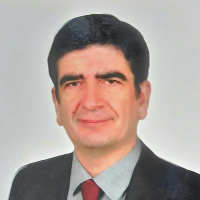


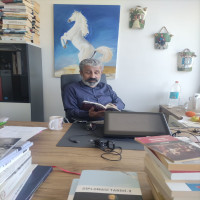


Malek Sawalha is a researcher specializing in Turkish linguistics. His work focuses particularly on Chagatai Turkish, Old Turkic (Orkhon, Uighur, Karakhanid), Middle Turkic, Khwarazm, Kipchak, and other historical Turkic dialects. He also conducts research on Early Anatolian Turkish, Ottoman Turkish, and Modern Turkish within the scope of New Turkish Language studies.
His research interests include the linguistic features of historical Turkic dialects, phonological and morphological structures, diachronic language change, and the historical development of the Turkish language. He continues his academic work to analyze different periods of Turkish through scientific methods, to examine language development based on historical texts, and to contribute to the field of Turkic linguistics.

 Web
Web
Dr. Nadira Benzaid holds a baccalaureate degree from the Division of Arts and Humanities in
Skikda and holds a BAc in Arabic Literature at the University of Annaba, 2005 .She completed
a master's degree in discourse linguistics in 2010 and a PhD in Science in Lexicography and
Issues of Significance in 2018. Dr. Nadira Benzaid is a lecturer at the University of August 20,
1955, Skikda, since 2011 to the present day . In addition to supervising bachelor and master
degrees, she participated in international and national conferences.

Taner GÜÇLÜTÜRK
(Biography)
Taner Güçlütürk was born on April 20, 1980, in Prizren. He completed his primary, secondary, and high school education in this city, and earned his bachelor’s and master’s degrees at the University of Pristina. In 2011, with his doctoral dissertation titled “Contemporary Turkish Literary Creativity in Kosovo Between 1951–2001”, he completed his PhD at the Department of Turkish Language and Literature, Faculty of Philology “Blaže Koneski,” Ss. Cyril and Methodius University in Skopje, obtaining the title of Doctor of Philological Sciences in the field of New Turkish Literature.
He began his career in journalism, program production, and broadcasting in 1999 with Turkish-language broadcasts at Radio Prizren, and later continued this work at the Yeni Dönem newspaper, radio, and television. In 2001, he received journalism training at a journalism school organized by the Vienna Radio and Television Corporation in Austria, and in 2006 he participated in a journalism training program held in the United States by the U.S. Department of State Education Institute. Between 1999 and 2009, he worked as a journalist, presenter, and program producer for numerous local, national, and international media organizations. In 2005, he was awarded Journalist of the Year in Kosovo by the Finnish Human Rights Kosovo Coordination Office and the Network of Human Rights Radios. He served as a member of the Kosovo Press Council between 2005 and 2006.
Between 2012 and 2016, he represented the Kosovo Turkish Community on the Advisory Council for Communities of the Presidency of Kosovo. In 2008, by decision of the Senate of the University of Pristina, he worked for five years as a lecturer in the Department of Turkish Language and Literature at the Faculty of Philology, where he taught courses such as Turkish Literatures, Literary Translation, and Fundamentals of Journalism, and conducted practical course work. After 2013, he served as a Turkish language instructor at the Kosovo Turkish Representation Office and at the Yunus Emre Institutes in Prizren and Pristina. From 2014 onward, he assumed responsibility for and production of Turkish-language broadcasts at Radio İpek.
Güçlütürk is also a research fellow at the Balkan Turkish Studies Research Center (BAL-TAM), headquartered in Prizren. He previously served as a board member of the Kosovo Turkish Journalists Association and the Kosovo Turkish Intellectuals’ Association. Since 2018, he has been the Kosovo representative and a member of İLESAM (Association of Science and Literature Works Owners of Turkey), and is also a member of the Writers Union of Turkey and the Eurasian Writers’ Union. He serves as the Chair of the Jury of the International “Süleyman Brina” Balkan Turkish Culture Service Award of the “Doğru Yol” Turkish Culture and Arts Association, and as Co-Chair of the Kosovo Turkish Writers Association.
His poems, essays, news articles, commentaries, and scholarly papers have been published in numerous journals and newspapers. In the fields of Turkology and related disciplines such as language, literature, folklore, and history, he has published more than 50 successful scholarly articles and research papers in national and international academic journals. In recent years, he has focused primarily on Contemporary Turkish Literature. His principal published works include:
Published Works
Translation: Dr. Taner Güçlütürk; Author: Jeton Kelmendi, How to Love, poetry book, Lulu Press, USA, 2011.
Taner Güçlütürk, Turkish Literary Creativity in Kosovo (1951–2001), scholarly research/doctoral thesis book, BAL-TAM Publications, Prizren, Kosovo, 2014.
Mourning Does Not Suit My Language, poetry book, Değişim Publications, Istanbul, May 2014.
Editor: Dr. Taner Güçlütürk, New Companions on the Road, a selection of young artists and talents in Kosovo’s literature, visual arts, and music, Kosovo Turkish Writers Association Publications, Prizren, 2015.
Editor and Translator: Dr. Taner Güçlütürk, Anthology of Contemporary Poetry in Kosovo, Kosovo Turkish Writers Association Publications, Prizren, 2016.
Editor: Dr. Taner Güçlütürk – Zeynel Beksaç, In the Footsteps of Verses in the Balkans, Kosovo Turkish Writers Association Publications, Prizren, 2016.
Translation: Dr. Taner Güçlütürk; Author: Nesim Ispahiu, The Taste of the Verse, poetry, March 2025, Prizren, Kosovo.
Translation: Dr. Taner Güçlütürk; Author: Nexhat Ibrahimi, Islam in Illyrian-Albanian Lands Through the Centuries, historical scholarly research, in translation, 2025, Prizren, Kosovo.
Translation: Dr. Taner Güçlütürk; Author: Vlora Ademi, Katërdhetë e pak, poetry, in translation, 2025, Prizren, Kosovo.
Translation: Dr. Taner Güçlütürk; Author: Milazim Krasniqi, Russian Roulette for Ali Pasha, drama, awaiting publication.
Translation: Dr. Taner Güçlütürk; Author: Naser Shatrolli, Garden Flowers, drama/comedy, staged at the Samsun Theatre Festival in 2024.
Books Edited and Prepared for Publication
(Here follows a list of 15 poetry, short story, and literary works edited by Güçlütürk between 2016 and 2025, published mainly by the Kosovo Turkish Writers Association in Pristina and Prizren.)
Active in civil society organizations engaged in cultural, artistic, and intellectual activities, Güçlütürk has carried out dynamic work on the current issues of his community and played an active role in preserving culture, art, national identity, and social values in the region. For these efforts, he has received numerous awards and commendations. Among them are the 1998 “Doğru Yol” Poetry Competition Award, the 2005 Journalist of the Year Award by the Finnish Human Rights Kosovo Coordination, second prize in poetry at the 2008 International Literature Competition in Obernai, France, the 2018 International Writers Association Literature Award (Brussels), the 2020 International “Süleyman Brina” Balkan Turkish Culture Service Award, the 2019 “Service to Turkology and Academic Award” by the Institute for the World of Turks (IfWT), the 2022 Prizren Municipality Writer of the Year Award, the 2022 “Best Poetry in Turkish Language” Award, the 2024 Ahmet Kabaklı Literature Medal by the Turkish Literature Foundation, and the 2025 “February 17 Independence Literature Award. In total, he has received ten national and international awards, in addition to hundreds of certificates of appreciation, plaques, and honors.
Güçlütürk has delivered numerous conferences and lectures internationally on topics ranging from Turkish journalism in the Balkans to contemporary Turkish literature, Balkan cultural identity, and Ottoman and modern literary traditions. He serves on the editorial boards of several international peer-reviewed journals in Turkology and literature in Kosovo, North Macedonia, and Turkey, and acts as a specialist in Contemporary Turkish Literature in the Balkans.
Over the past 25 years, he has represented Kosovo and the Kosovo Turkish Community at hundreds of congresses, symposiums, festivals, seminars, workshops, and conferences at local, national, and international levels. As a Turkologist, he has devoted sustained effort to preserving and advancing Turkish literature, culture, and art in the region. He has supported and mentored a new generation of Kosovo Turkish writers and poets, contributing to the preparation, publication, and promotion of their works, notably through the anthology New Companions on the Road.
In addition to literary creation, Güçlütürk has made significant contributions as a literary translator, introducing contemporary Albanian, Bosniak, Roma, and Gora literary creativity in Kosovo to Turkish readers through anthologies and translated works. His Anthology of Contemporary Poetry in Kosovo was purchased by the Kosovo Ministry of Culture in 2019 and distributed to libraries throughout the country.
Between 2014 and 2025, particularly within the framework of the Yunus Emre Institute, he successfully carried out numerous cultural and artistic projects. As Chair (2015–2016) and current Co-Chair of the Kosovo Turkish Writers Association, he has coordinated hundreds of literary and cultural events in cooperation with ministries, municipalities, embassies, cultural institutes, and civil society organizations in Kosovo, Turkey, Albania, and North Macedonia.
Currently, Güçlütürk continues his intensive research in New Turkish Literature, alongside ongoing studies in Turkology and related disciplines. His areas of interest also include Turkish–Albanian and Turkish–Bosnian translation, teaching Turkish to foreigners, history, cultural studies, folklore, history of education, and journalism.
Section Editor (English)

Holds a PhD from St Mary’s College, St Andrew’s University, UK. He participated in several international and national projects by contributing articles on Rumi, Islam and din (religion) and papers on the Islamic perceptions of other religions, religious language, religion and science, religion and aesthetics. His most recent publications include God Between Reason and Experience (2019), Philosophy of Religion (ed.) (in Turkish, 2019), Religious Pluralism and Islam (2014), Ernst Troeltsch’s Philosophy of Religion (in Turkish, 2012), Mawlawiya as Co-existential Experience (2009), and Rethinking Religious Freedom (2007). His main research interests are religious pluralism, religious language, religious experience, religion and aesthetics, Rumi studies, literature and philosophy, cinema and theology and philosophy through poetry. Since 2012, he has been working as Associate Professor of the Philosophy of Religion at the Theology Faculty of Akdeniz University, Antalya.
Section Editor (Artificial Intelligence)

Section Editor (Philosophy)

Holds a PhD from St Mary’s College, St Andrew’s University, UK. He participated in several international and national projects by contributing articles on Rumi, Islam and din (religion) and papers on the Islamic perceptions of other religions, religious language, religion and science, religion and aesthetics. His most recent publications include God Between Reason and Experience (2019), Philosophy of Religion (ed.) (in Turkish, 2019), Religious Pluralism and Islam (2014), Ernst Troeltsch’s Philosophy of Religion (in Turkish, 2012), Mawlawiya as Co-existential Experience (2009), and Rethinking Religious Freedom (2007). His main research interests are religious pluralism, religious language, religious experience, religion and aesthetics, Rumi studies, literature and philosophy, cinema and theology and philosophy through poetry. Since 2012, he has been working as Associate Professor of the Philosophy of Religion at the Theology Faculty of Akdeniz University, Antalya.

ection Editor (Logic)

Section Editor (Sociology)




 Web
Web

2002 yılında Atatürk Üniversitesi İlahiyat Fakültesinden mezun olmuştur. Yüksek lisansını Atatürk Üniversitesi Sosyal Bilimler Enstitüsü Felsefe ve Din Bilimleri Anabilim Dalında “Reality Show ve Kadın Programlarının Türk Aile Yapısına Etkisi (Erzurum Örneği)” konulu teziyle 2006 yılında tamamlamıştır. Aynı enstitüde yaptığı, “Din ve Sosyal Bütünleşme: Farklılık ve Birlikte Yaşama (Göksun Örneği)” adlı çalışmayla 2012 yılında doktor olmuştur. 2003-2013 tarihleri arasında Diyanet İşleri Başkanlığı taşra teşkilatında çalışmıştır. 2013 yılından beri Akdeniz Üniversitesi İlahiyat Fakültesi, Felsefe ve Din Bilimleri Bölümü, Din Sosyolojisi Anabilim Dalında öğretim üyeliği görevini sürdürmektedir.
Section Editor (Education)

1980 Karaman doğumlu olan Başkonak, ilkokul, ortaokul, lise ve üniversite eğitimini Konya’da tamamladı. DKAB derslerinde kavram haritaları konulu teziyle 2005 yılında Selçuk Üniversitesinde yüksek lisansını, işitme engellilerin din eğitimi konulu teziyle de 2016 yılında Necmettin Erbakan Üniversitesinde doktorasını tamamladı. 2013 yılında “Türk İşaret Dili Dini Kavramlar Sözlüğü”, 2018 yılında “Özel Eğitimde Din Eğitimi”, 2020 yılında “İlahiyat Bilimleri Açısından Engellilik” ve “İlahiyat Bilimleri Alanında Uluslararası Araştırmalar”, 2021 yılında “Türk İşaret Dili Din Terminolojisi”, 2022 yılında “İlahiyat Bilimleri Açısından Göç” ve 2023 yılında “İlahiyat Bilimleri Açısından Şehir” isimli çalışmaların editörlüğünü yaparak özel eğitim ve ilahiyat bilimleri alanlarına katkı sağladı. Diyanet İşleri Başkanlığı ve Millî Eğitim Bakanlığı personeline yönelik hizmet içi eğitim kursları düzenledi. Hazırladığı ve yürütücü olarak görev aldığı Bilinçli Üniversite Engelsiz Kampüs projesi 2017 yılında, Türk İşaret Dili Din Terminolojisi projesi ise 2021 yılında İçişleri Bakanlığı tarafından desteklendi. Evli ve 4 çocuk babası olan Başkonak, 2003-2014 yılları arasında İmam-Hatip, 2014-2016 yılları arasında araştırma görevlisi, 2016-2023 yılları arasında Dr. Öğr. Üyesi olarak görev yapmıştır. Hâlen Karamanoğlu Mehmetbey Üniversitesi İslami İlimler Fakültesi Felsefe ve Din Bilimleri Bölümü Din Eğitimi Anabilim Dalında öğretim elemanı olarak görev yapmaktadır.
Section Editor (History)




Section Editor (History of Islamic Sects)


Section Editor (History of Religion)


2023-: Ordu Univ. Faculty of Divinity, Department of History of Religions (Asst. Prof.)
2018-2022: Erciyes University ISS - History of Religions (Ph.D)
2016-2018: Erciyes University ISS - History of Religions (M.Sc.)
2011-2016: Erciyes University Faculty of Divinity (Grad)
Arabic B2 | English B2 | Japanese B2 | Korean A1
Section Editor (Hadith)

Section Editor (Islamic Theology/Kalām)

Section Editor (Islamic Law)
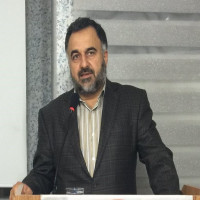
Section Editor (Literature)

1990 yılında Malatya’da doğdu. İlk ve orta okulu burada tamamladı (2004). Liseyi Antalya Aksu Anadolu Öğretmen Lisesinde okudu (2008). İstanbul Üniversitesi Edebiyat Fakültesi Türk Dili ve Edebiyatı ile Fars Dili ve Edebiyatı bölümlerinden mezun oldu (2008-2013). Pamukkale Üniversitesi Türk Dili ve Edebiyatı Bölümü Eski Türk Edebiyatı Ana Bilim Dalında araştırma görevlisi olarak çalıştı ve aynı alanda, Prof. Dr. Süleyman SOLMAZ danışmanlığında yüksek lisansını tamamladı (2013-2015). İnönü Üniversitesi İlahiyat Fakültesinde Arapça hazırlık eğitimini tamamladı (2015-2016). İnönü Üniversitesi Türkçe Öğretimi Uygulama ve Araştırma Merkezinde (TÖMER) öğretim görevlisi olarak çalıştı (2017-2024). İnönü Üniversitesi Fen Edebiyat Fakültesi Türk Dili ve Edebiyatı Bölümünde öğretim görevlisi olarak çalışmaktadır (2024-...). İnönü Üniversitesi Sosyal Bilimler Enstitüsü Türk Dili ve Edebiyatı Ana Bilim Dalı Eski Türk Edebiyatı Bilim Dalında Prof. Dr. Süleyman ÇALDAK danışmanlığında hazırladığı "Şeyhülislam Yahya Divanı'ndaki İnşa (Emir, İstifham, Temenni, Nida) İfadelerinin Belagat İlmine Göre İncelenmesi" adlı tezini savunarak doktor ünvanını almaya hak kazandı (2022).

Section Editor (Sufism)
Section Editor (Communication)

Section Editor (Art History)
1989 yılında Selçuk Üniversitesi Arkeoloji ve Sanat Tarihi bölümünden mezun oldu. 1998 yılında da “Ortaçağ’da Kayseri Kent Dokusunun Gelişimi” isimli tezle de doktora çalışmasını tamamladı.1996-2015 yılları arasında Selçuk Üniversitesi Sanat Tarihi Bölümü Türk Dünyası ve Ortaçağ Kültürleri Arkeolojisi Ana Bilim Dalında sırasıyla Ana Bilim Dalı Başkanı olarak, 2015-2016 yılları arasında Uludağ Üniversitesi, Fen-Edebiyat Fakültesi Sanat Tarihi Bölümünde Bölüm Başkanı olarak görev yaptı. 2016 yılından itibaren Akdeniz Üniversitesi, Edebiyat Fakültesi, Sanat Tarihi Bölümü Ortaçağ Arkeolojisi Ana Bilim Dalında öğretim üyesi olarak görev yapmaktadır. 2016-2021 yılları arasında Akdeniz Üniversitesi, Güzel Sanatlar Fakültesi Dekanlığı görevini de yürüttü.
2003 yılında DAI Bursu ile Berlin’de Selçuklu Mimarlık ve Sanatında spolien malzeme kullanımı konusunda araştırma yaptı .2011 yılında New York FIAF’da Selçuklu dönemi kervansarayları üzerine konuk araştırmacı olarak araştırma daveti aldı. 2015-2018 yılları arasında TÜBİTAK SOBAG, Grup Yürütme Kurulu Üyeliği görevini yürüttü. 2015 yılından itibaren Avrupa Komisyonu, TÜBITAK-UİDB Horizon 2020 Sosyal ve Beşeri Bilimler (SSH) alanı komisyon toplantılarına Türkiye Komite üyesi olarak katılmaktadır.
1986 yılında Knidos Kazısına, 1998 ve 1999 yıllarında Konya ve Çevresindeki Kervansaray Kazılarına, 2001 yılında Alanya Kalesi Kazısına katıldı. 2007-2013 yılları arsında Bakanlar Kurulu kararlı “Alara Kazısı’nın” Başkanlığını yürüttü. 2015 yılından itibaren Bakanlar Kurulu izni ile Alanya Kazısının Kazı Başkanlığını yaptığı çalışmalara halen devam etmektedir. 2014 yılında Türkmenistan’ın Merv Şehrinde Türkmenistan-Türkiye işbirliği protokolü çerçevesinde TİKA’nın desteğiyle Sultan Alparslan’ın Mezar yerinin aranması için arkeolojik kazıların kazı başkanı olarak görev yapmaya başladı. 2015-2018 yılları arasında TİKA’nın desteğiyle Kırgızistan Koçkor’da Karahanlı dönemine tarihlenen bir Türbe yapısında Arkeolojik Kazı çalışmalarını yürüttü. Bu kazı çalışmaları dışında birçok küçük ortaçağ arkeolojisine yönelik kazı ve araştırmalarda bulundu. Bunlardan bazıları, Sedre Selçuklu Köşkü Kazısı, Aksaray 2. Kılıçarslan Hamamı Kazısı, Divriği Ulu Camisi (UNESCO WHL) Kazısı, Antalya Mevlevihane Çevresi Araştırma Kazısı, Şehzade Korkut Camisi (Kesik Minare) Araştırma Kazılarıdır.
2009 yılında başlanılan “Büyük Selçuklunun Mirası” projesinin baş yazar ve editörüdür. Bu proje kapsamında 2013 yılında bu çalışmalar sonucunda toplam beş ciltlik iki çalışması Türkçe ve İngilizce olarak yayınlandı. 2018 yılında Kazakistan Kültür Bakanlığının da davetiyle Kazakistan’daki arkeolojik araştırmalar ve Türkistan Yesi’deki arkeolojik kazı çalışmaları için Türkiye-Kazakistan arasında koordineli çalışmalara başladı. Halen bu çalışmalar sürdürülmektedir. 2015-2016 yılları arasında Anadolu Selçuklu Kervansarayları ile ilgili olarak “Yolların Tanıkları” isimli kitabı hazırladı. Müzecilik alanı ile ilgili dersler verdi ve araştırmalara katıldı. Türkiye’de Afyonkarahisar Devlet Müzesi, Ankara Makine Kimya Endüstrisi Kurumu Müzesi, Alanya Selçuklu Sarayı Müzesi gibi birçok müzede küratörü olarak görev yaptı. Halen Antalya Kültür Varlıklarını Koruma Kurulunun Başkanlığı görevini sürdürmektedir. Türkiye’de ve Türkiye dışında (Kırgızistan, Afganistan) olmak üzere çok sayıda yapının koruma ve restorasyonu ile ilgili konularda Restorasyona yön verecek araştırma grubunun başkanlığını ve ekip üyeliğini yaptı. Koruma ve Restorasyon konusunda Türkiye’deki birçok kurulda raportör, kurul üyesi ve kurul başkanlığı yaptı.
Çalışma alanı ile ilgili olarak, Berlin Pergamon Museum, Oxford Üniversitesi, Leeds Üniversitesi, Trnava (Slovakya) Üniversitesi, Hindistan Jamia Milliye Üniversitesi, Polonya Wroclaw Üniversitesi, İspanya Cadis Üniversitesi, Almanya Mainz Üniversitesi, Hindistan IGNCA Enstitüsünde konferans ve sempozyumlarda bildiri sundu. Çalıştığı konularda beş kitabı ve çok sayıda kitap ve dergilerde makale yayınladı.
Section Editor (Information and Records Management)

Section Editor (Arabic language and literature)
Ethics Editor

Holds a PhD from St Mary’s College, St Andrew’s University, UK. He participated in several international and national projects by contributing articles on Rumi, Islam and din (religion) and papers on the Islamic perceptions of other religions, religious language, religion and science, religion and aesthetics. His most recent publications include God Between Reason and Experience (2019), Philosophy of Religion (ed.) (in Turkish, 2019), Religious Pluralism and Islam (2014), Ernst Troeltsch’s Philosophy of Religion (in Turkish, 2012), Mawlawiya as Co-existential Experience (2009), and Rethinking Religious Freedom (2007). His main research interests are religious pluralism, religious language, religious experience, religion and aesthetics, Rumi studies, literature and philosophy, cinema and theology and philosophy through poetry. Since 2012, he has been working as Associate Professor of the Philosophy of Religion at the Theology Faculty of Akdeniz University, Antalya.
Index Editor











